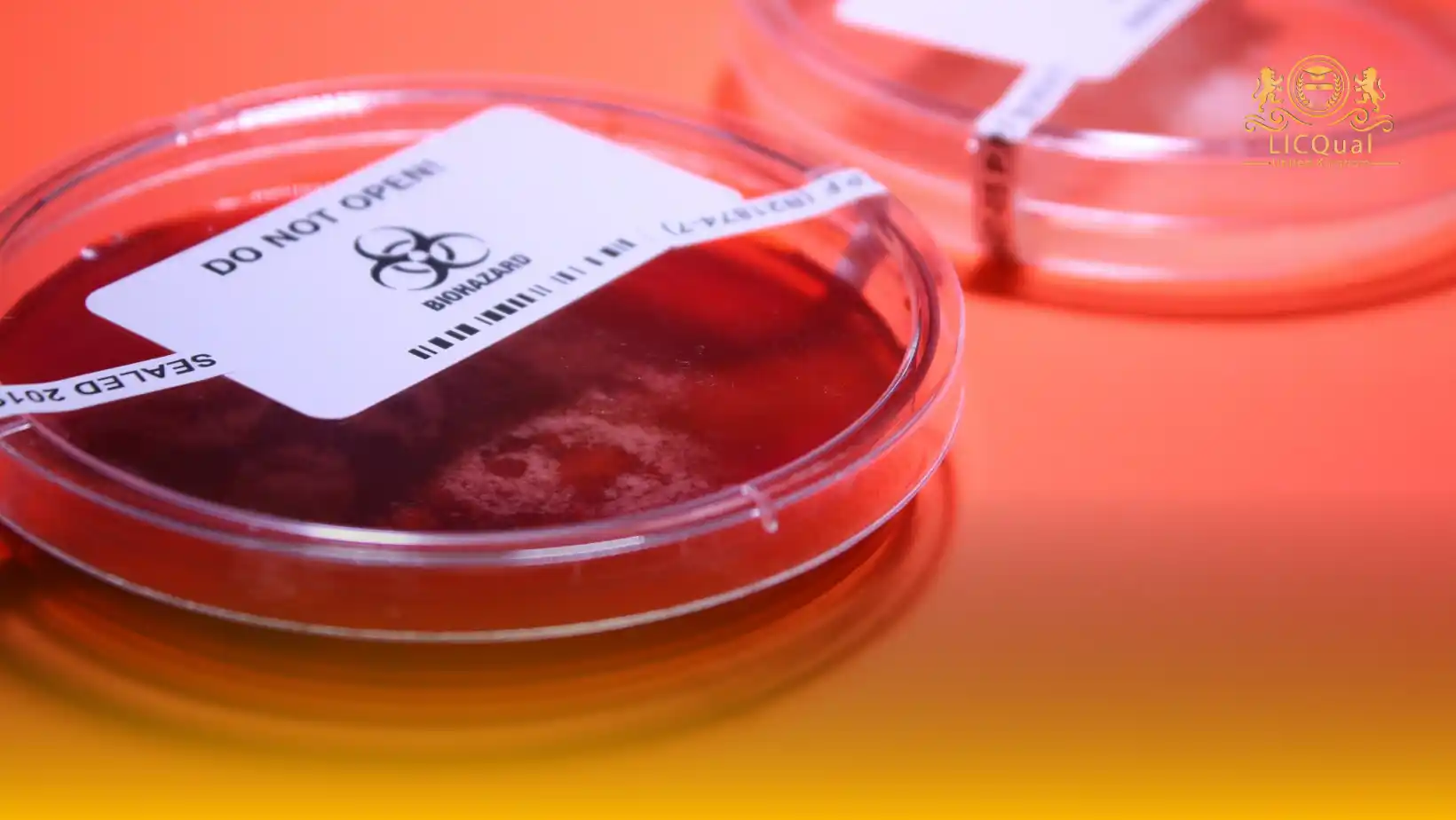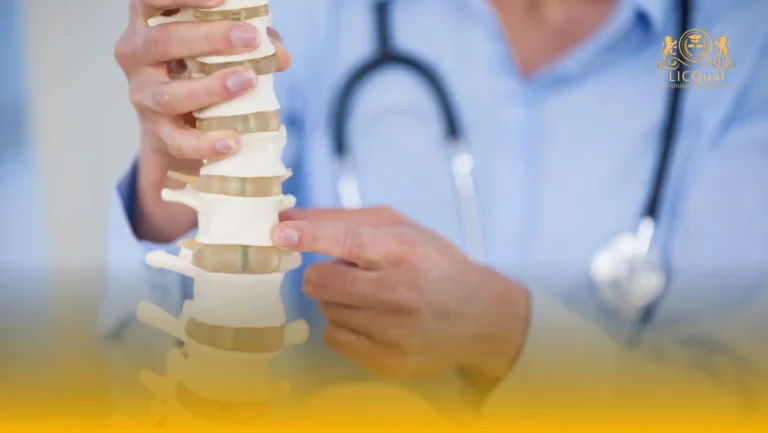The LICQual Level 7 Postgraduate Diploma in Infectious Disease Medicine (PgD IDM) is an advanced qualification designed for experienced healthcare professionals seeking to enhance their expertise in the diagnosis, management, and prevention of infectious diseases. This programme is not intended for fresh candidates but is tailored for medical practitioners, clinicians, and healthcare specialists who wish to expand their knowledge, strengthen their professional practice, and advance their career prospects.
This postgraduate diploma provides learners with an in-depth understanding of infectious diseases, including epidemiology, emerging pathogens, antimicrobial resistance, infection control, and global health challenges. The qualification also emphasises evidence-based practice, advanced research, and the development of critical decision-making skills essential for managing complex clinical cases.
Centres delivering this programme must ensure that competent and qualified faculty members are available to provide high-quality instruction. In addition, centres should be equipped with modern learning resources, research materials, and digital platforms to support interactive and effective learning. This ensures that learners receive comprehensive academic and practical exposure, enabling them to achieve excellence in infectious disease medicine.
The PgD IDM is also a valuable pathway for professionals committed to Continuing Professional Development (CPD), helping them stay up to date with evolving global health concerns. By completing this qualification, learners will not only enhance their clinical competence but also contribute to improving patient care, strengthening healthcare systems, and advancing public health outcomes on a global scale.
Course Overview
Qualification Title
LICQual Level 7 Postgraduate Diploma in Infectious Disease Medicine (PgD IDM)
Total Units
6
Total Credits
120
GLH
600
Qualification #
LICQ2200968
Qualification Specification
To enroll in the LICQual Level 7 Postgraduate Diploma in Infectious Disease Medicine (PgD IDM), applicants must meet the following criteria:
|
Qualification# |
Unit Title |
Credits |
GLH |
|---|---|---|---|
|
LICQ2200968-1 |
Principles of Infectious Disease Medicine and Epidemiology |
20 |
100 |
|
LICQ2200968-2 |
Diagnostic Methods and Laboratory Practices in Infectious Diseases |
20 |
100 |
|
LICQ2200968-3 |
Antimicrobial Therapy and Drug Resistance Management |
20 |
100 |
|
LICQ2200968-4 |
Infection Prevention, Control, and Outbreak Management |
20 |
100 |
|
LICQ2200968-5 |
Global Health Challenges and Emerging Infectious Diseases |
20 |
100 |
|
LICQ2200968-6 |
Research Methods and Evidence-Based Practice in Infectious Diseases |
20 |
100 |
By the end of this course, learners will be able to:
Unit 1: Principles of Infectious Disease Medicine and Epidemiology
By the end of this unit, learners will be able to:
- Critically analyse the epidemiology, transmission dynamics, and pathophysiology of major infectious diseases.
- Evaluate host–pathogen interactions and their impact on disease progression and immunity.
- Apply advanced epidemiological methods to investigate infectious disease trends.
- Assess the role of public health systems in surveillance, prevention, and control of infections.
Unit 2: Diagnostic Methods and Laboratory Practices in Infectious Diseases
By the end of this unit, learners will be able to:
- Demonstrate advanced knowledge of microbiological, immunological, and molecular diagnostic techniques.
- Interpret laboratory test results with accuracy and integrate them into clinical decision-making.
- Evaluate the reliability, limitations, and ethical considerations of diagnostic practices.
- Apply evidence-based diagnostic approaches to improve infectious disease management.
Unit 3: Antimicrobial Therapy and Drug Resistance Management
By the end of this unit, learners will be able to:
- Critically assess the principles of antimicrobial pharmacology and therapeutics.
- Develop treatment strategies for infectious diseases using evidence-based guidelines.
- Analyse the mechanisms and global impact of antimicrobial resistance (AMR).
- Formulate policies and stewardship interventions to promote rational antimicrobial use.
Unit 4: Infection Prevention, Control, and Outbreak Management
By the end of this unit, learners will be able to:
- Design and implement infection prevention and control (IPC) protocols in healthcare and community settings.
- Critically evaluate strategies for outbreak investigation, containment, and emergency response.
- Apply surveillance systems for early detection and management of infectious threats.
- Assess the effectiveness of vaccination, hygiene, and biosecurity measures.
Unit 5: Global Health Challenges and Emerging Infectious Diseases
By the end of this unit, learners will be able to:
- Critically evaluate the burden of infectious diseases in different global health contexts.
- Assess the role of global health organisations in combating pandemics and epidemics.
- Analyse case studies of emerging and re-emerging infectious diseases (e.g., COVID-19, Ebola, Zika).
- Formulate evidence-based strategies for pandemic preparedness and international collaboration.
Unit 6: Research Methods and Evidence-Based Practice in Infectious Diseases
By the end of this unit, learners will be able to:
- Apply advanced research methodologies relevant to infectious disease medicine.
- Critically appraise clinical trials, epidemiological studies, and scientific literature.
- Design and conduct research projects that contribute to the evidence base in infectious diseases.
- Integrate evidence-based findings into clinical practice and public health policies.
The LICQual Level 7 Postgraduate Diploma in Infectious Disease Medicine (PgD IDM) is designed for a wide range of learners, including experienced healthcare professionals, beginners entering the medical field, and career changers seeking new opportunities in infectious disease medicine. This internationally recognized qualification provides advanced knowledge, CPD accreditation, and practical skills in epidemiology, outbreak control, and global health. Whether you want to strengthen your expertise, gain international recognition, or transition into healthcare, this program offers the flexibility and depth to meet your career goals.
Healthcare Professionals Advancing Their Careers
- Doctors aiming to specialize in infectious disease medicine and outbreak management
- Nurses seeking leadership roles in infection control and hospital epidemiology
- Allied health professionals expanding into global health and disease prevention
- Medical practitioners interested in antimicrobial resistance and immunisation strategies
- Professionals looking for CPD accredited infectious disease qualifications
Beginners Entering Infectious Disease Medicine
- Fresh graduates exploring postgraduate pathways in healthcare and medicine
- Students seeking a recognized Level 7 qualification in infectious disease medicine
- Individuals interested in evidence-based practice and global health challenges
- Learners wanting to build foundational knowledge in epidemiology and outbreak control
- Beginners looking for flexible online study options with international recognition
Career Changers Transitioning into Healthcare
- Professionals from non-medical backgrounds seeking new opportunities in healthcare
- Managers moving into healthcare leadership and infectious disease policy roles
- Individuals passionate about global health and patient safety
- Career changers looking for internationally accredited qualifications
- Those seeking practical skills for immediate application in healthcare systems
Public Health Leaders and Policy Makers
- Government health officers aiming to strengthen expertise in infectious disease policy
- NGO professionals working in global health and outbreak response programs
- Public health managers responsible for community health initiatives
- Leaders seeking advanced training in healthcare systems and epidemic control
- Policy makers interested in evidence-based decision making for infectious diseases
International Students and Global Learners
- Learners seeking a UK-accredited postgraduate diploma in infectious disease medicine
- Students aiming for global recognition and career mobility in healthcare
- International healthcare professionals expanding their qualifications
- Individuals preparing for roles in WHO, UN, or global NGOs
- Students looking for flexible online study options across borders
Academics and Researchers in Infectious Disease Medicine
- Researchers focusing on epidemiology, pathogens, and outbreak control
- Academics seeking advanced postgraduate qualifications in healthcare
- Professionals aiming to publish in infectious disease and global health journals
- Educators developing curriculum in healthcare and policy studies
- Scholars interested in evidence-based healthcare interventions
Professionals Seeking CPD Accreditation
- Healthcare workers needing CPD accredited infectious disease qualifications
- Practitioners aiming to meet international professional standards
- Learners wanting recognized certification for career progression
- Professionals seeking structured postgraduate training in infectious disease medicine
- Individuals preparing for advanced leadership roles in healthcare and global health
Centres wishing to deliver this advanced postgraduate diploma must meet specific standards to ensure the highest quality of education and learner success. All centres are required to have the following:
- Qualified and Experienced Faculty – Instructors must hold relevant academic qualifications and professional expertise in infectious disease medicine, epidemiology, microbiology, and public health.
- Comprehensive Learning Resources – Access to up-to-date textbooks, digital libraries, case studies, and evidence-based research materials to support advanced-level study.
- Modern Teaching Facilities – Equipped lecture rooms, simulation labs, and digital platforms that enable blended and interactive learning.
- Digital Learning Infrastructure – Reliable online platforms, e-learning tools, and secure access to study materials to facilitate flexible and remote learning.
- Assessment and Quality Assurance Systems – Robust processes for evaluating learner performance, feedback, and academic integrity in line with international standards.
- Research and Practical Training Support – Opportunities for learners to engage in applied research, case discussions, and real-world infection control scenarios.
- Learner Support Services – Academic guidance, mentoring, counselling, and administrative support to ensure a smooth learning journey.
- Commitment to CPD and Innovation – Centres must promote Continuing Professional Development (CPD) and remain updated with the latest global trends in infectious disease medicine.
These requirements ensure that centres deliver a high-quality programme that prepares learners to excel in infectious disease management, clinical practice, and global health leadership.
Assessment and Verification
All units within this qualification are subject to internal assessment by the approved centre and external verification by LICQual. The qualification follows a criterion-referenced assessment approach, ensuring that learners meet all specified learning outcomes.
To achieve a ‘Pass’ in any unit, learners must provide valid, sufficient, and authentic evidence demonstrating their attainment of all learning outcomes and compliance with the prescribed assessment criteria. The Assessor is responsible for evaluating the evidence and determining whether the learner has successfully met the required standards.
Assessors must maintain a clear and comprehensive audit trail, documenting the basis for their assessment decisions to ensure transparency, consistency, and compliance with quality assurance requirements.







